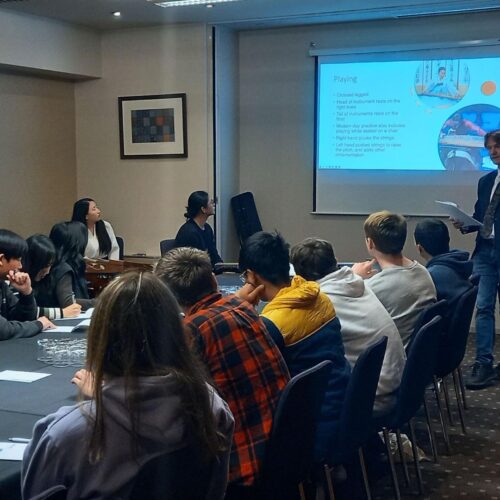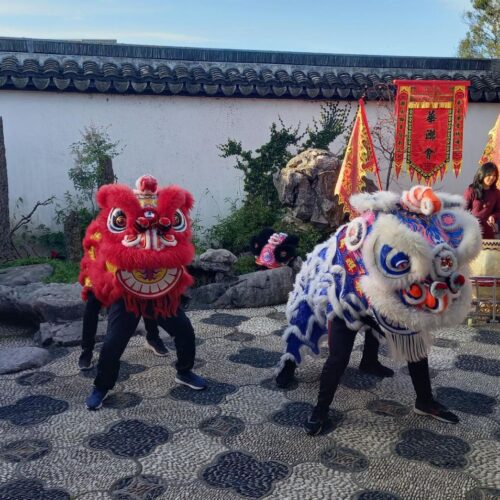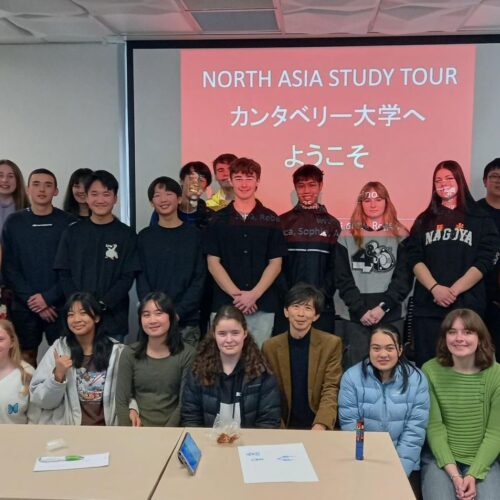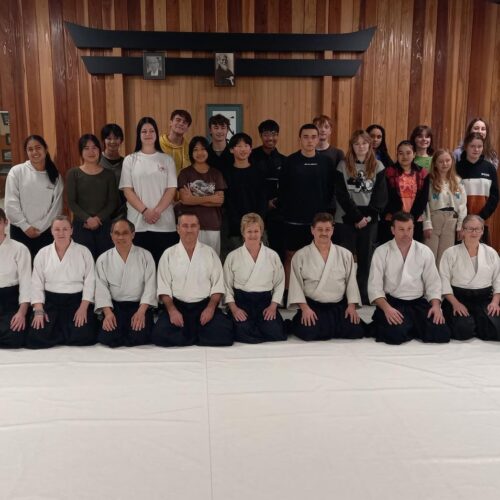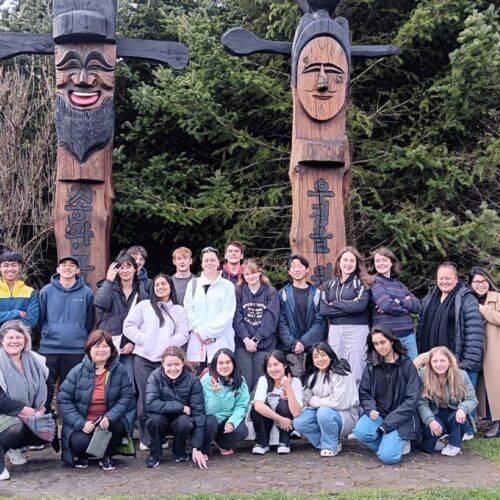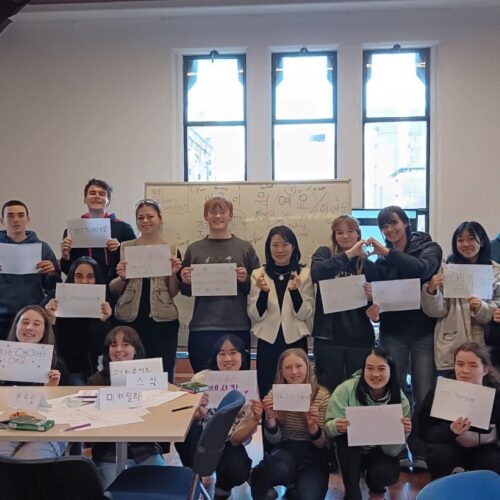2023 North Asia Language and Culture Study Tour
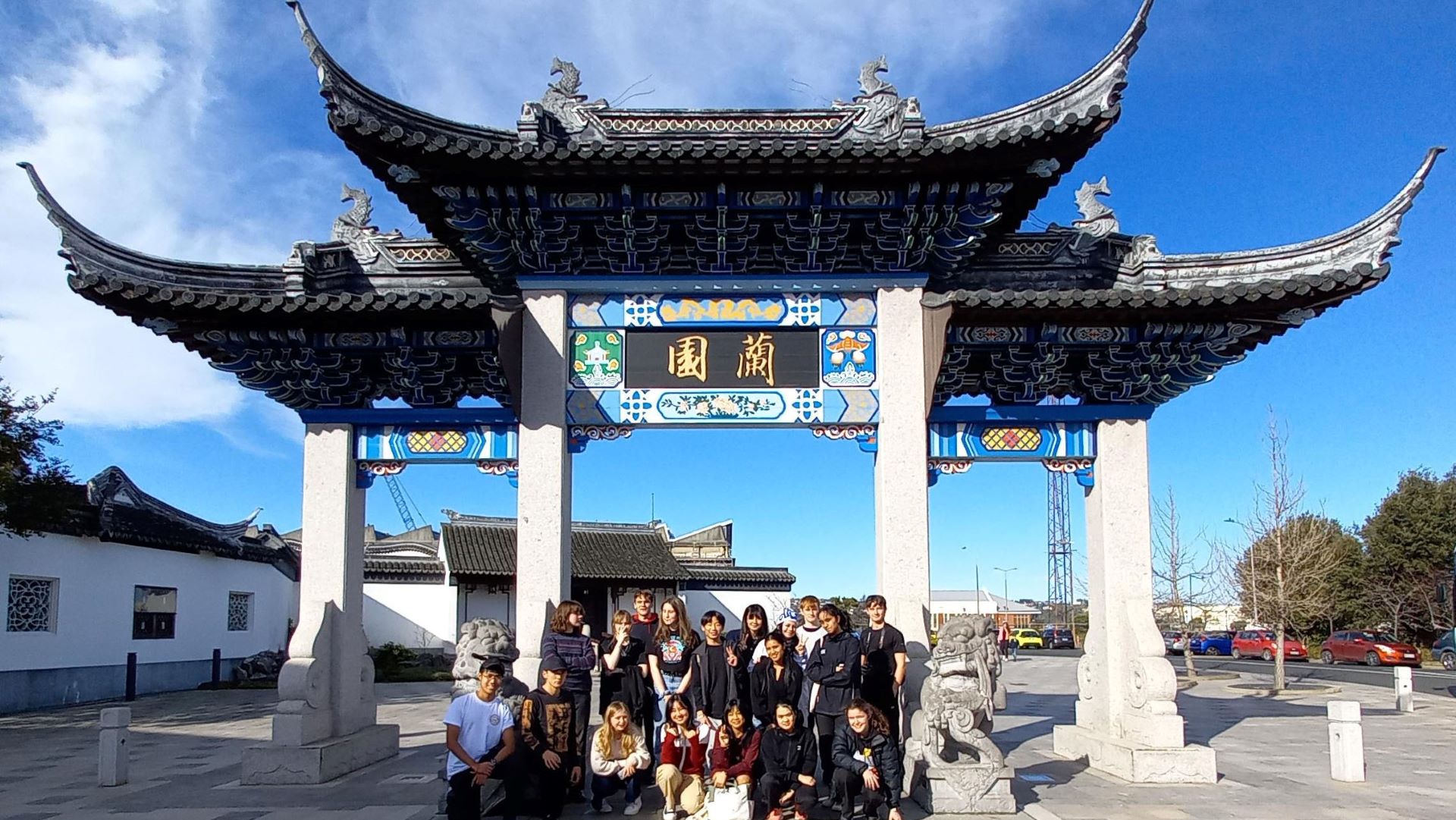
5 September 2023
For the second year running North Asia CAPE facilitated a four night-five day domestic study tour. This year we focused on two cities, Dunedin and Christchurch and it involved eighteen NZ high school students currently studying Chinese, Japanese, or Korean languages.
The aim of the tour was to increase cross cultural competencies, provide students with a greater understanding of the advantages of learning a North Asia language, and increase their awareness of North Asia as it relates to Aotearoa NZ history. Key components of the tour included language immersion, cultural immersion, and Aotearoa NZ history of all three countries of focus.
One of the core impacts of this programme is that students of one North Asian language are exposed to and given the opportunity to become interested in the other North Asian languages
“I took away a newfound love for speaking in Mandarin Chinese. I enjoy speaking it more than the language I am currently studying.” Participant on the 2023 North Asia Language and Culture Study Tour
“As fun as the workshops were, it was so cool to be able to meet people who share similar dreams to you while also learning so much about each others language”. Participant on the 2023 North Asia Language and Culture Study Tour
The first day started with Professor Henry Johnson from the University of Otago who provided an overview of the strong connections New Zealand has with China, Japan, and South Korea by introducing the musical cultures of those countries in the context of Aotearoa New Zealand history. Students were treated to musical performances on traditional Chinese musical instruments (Guqing, and Yángqín) preparing them for the next day of activities focusing on China.
Day two started with Chinese language immersion facilitated by Professor Paola Voci at the University of Otago. She equipped students with the confidence to use basic expressions effectively in conversation as well as write common Chinese characters. Focus in the afternoon was on Chinese immigration to New Zealand and its importance to Aotearoa NZ history at Toitū Otago early settlers Museum. A short distance away Lan Yuan gardens offered the opportunity appreciate Dunedin city’s heritage and strong ties with China while learning about its hidden culture and traditions. The Otago Southland Chinese Association introduced Chinese lion dance, then gave a performance. Later students participated in a workshop, learning how to play the drums and wear the lion dance costumes. They then challenged themselves by giving their own lion dance performance.
The next day focused on Japan. Students visited the University of Canterbury for two presentations. Dr. Masayoshi Ogino kept the attention of students with interactive language immersion group tasks combined with Japanese well-being and mindfulness phrases to remember. Associate Professor Alistair Swale introduced anime and manga in a way that students could grasp the history, meaning, and context for contemporary Japanese pop culture many students were familiar with. Later, an Aikido performance at the Shinryukan Aikido Canterbury dojo including a practical workshop gave students simple but effective self-defence techniques with deep Japanese cultural significance. Japanese members of the Kurashiki Sister City Committee, and the Japanese Society of Canterbury later outlined the importance of relationship between Christchurch and Kurashiki cities.
Day four of the tour was Korea day. Simon Oe from Christchurch Songpa-gu Sister City Committee provided an overview of the relationship between New Zealand and South Korea highlighting the strong connections that exist between the two countries including the importance of recognizing New Zealand’s involvement in the Korean war. He then joined the group at Halswell Quarry Park where he provided a guided tour of the Korean garden. Students not only saw a glimpse of Korea but also learned about the strong ties between Aotearoa and Korea. In the garden was the Korean pavilion (jeongja), installed to commemorate the 60th anniversary of the NZ-Korea diplomatic relations and to honor the contribution and sacrifices of NZ Korean war veterans. In the afternoon students learned the Korean alphabet Hangeul and useful Korean phrases. This was followed by a dance workshop with students showcasing their K-pop dance moves. The day ended with a Korean traditional costume Hanbok and Korean fan dance experience. Overall, the programme immersed the students with Korea’s traditional and contemporary culture.
The morning of the final day was dedicated to preparing for final language group presentations later that afternoon. After lunch students learned about the importance of global citizenship and the key role language learning plays in understanding different people and cultures from all around the world.
The tour ended on a high note with student group presentations sharing their wonderful experiences and demonstrating their confidence to bring back their learnings to their schools and treasure the memories they have.
North Asia CAPE would like to acknowledge support making this tour possible: the University of Otago, the university of Canterbury, Toitū Otago Settlers Museum, City Walks, Kurashiki Sister City Committee, Christchurch Songpa-gu Sister City Committee, Korean Education Centre, and the many cultural providers who made this study tour possible.






